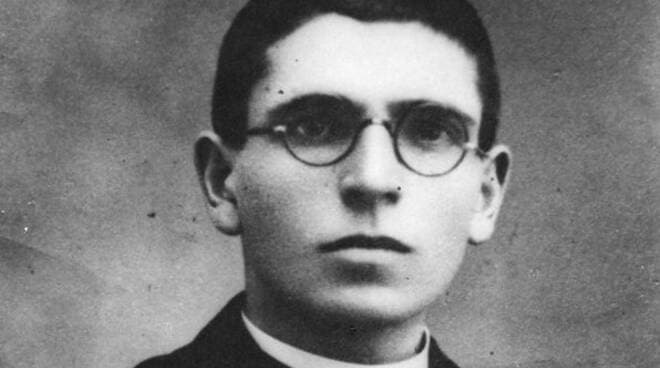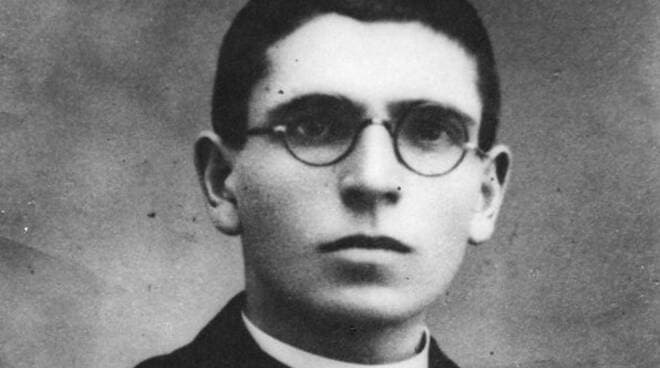When I was in graduate school many moons ago, a professor began to lead us through what appeared was going to be a discussion of the well-known “Problem of Evil”. If God is both all good and all powerful, the conundrum posits, how then are we to explain the seemingly endless suffering, cruelty and malice in the world?
Our professor began by saying that while he was happy to take up the topic, he first wanted us to remember that there’s also a less discussed, but equally perplexing “Problem of Good”: If we live in a fallen universe, and we’re all born with a propensity to sin, how do we account for the fact that so many people nevertheless display heroism, courage and self-sacrifice, especially when the incentives of the world cut so clearly in the opposite direction?
I’ve never forgotten the point, and it comes to mind again this week vis-à-vis a small ceremony set to take place on 7 August in the northern Italian city of Lucca, located in Tuscany about an hour west of Florence.
On that day, Cardinal Matteo Zuppi, President of the Italian Episcopal Conference, will preside over the installation of a plaque outside the headquarters of the local archdiocese commemorating the 28 priests and religious in Lucca who were executed by the Nazis during WWII for the crime of harbouring Jews and other victims of the German occupation.
Given that Lucca at the time had a population of just around 80,000, the fact that such a staggering count of priests and religious were killed in the 12 months between September 1943, when the occupation began, and September 1945, when Lucca was liberated by Allied forces, tells a remarkable tale.
Emblematic of the Lucca story is the last priest among the 28 to be killed, Father Aldo Mei, a 32-year-old who was shot to death by the Nazis exactly 80 years ago yesterday, on August 4, 1944.
Acting on a tip from an informant, Mei had been arrested on August 2 and charged with harbouring a Jew. For the record, the accusation was absolutely correct: Mei had been sheltering a young Jew by the name of Adolfo Cremisi in his spartan residence.
Mei was found guilty in a summary process and sentenced to death. Archbishop Antonio Torrini was denied permission to see the young priest, and Mei was denied access to the sacraments. In the 48 hours between his arrest and his execution, he was tortured in an effort to extract information about local partisans.
According to the chillingly meticulous records kept by Nazi officials, at 10 p.m. on August 4, Mei was escorted to his execution site by a group of SS and Wehrmacht soldiers. He was forced to dig his own grave, and then shot a total of 28 times.
Witnesses would later report that Mei died forgiving and blessing his executioners.
Shortly before he was killed, Mei succeeded in penning a few lines for his parents, which he wrote on the back of a paper bag and hid in his breviary. Here’s the best-known passage:
“I die overwhelmed by the dark storm of hatred, I who only wanted to live for love. Deus Charitas est, and God does not die. Love doesn’t die. I die praying for the same people who kill me. I die a victim of the hatred that tyrannises and ruins the world, I die so that charity may triumph.”
(Mei also told his parents he’d been charged with three offenses: Harbouring a young Jew, administering the sacraments to anti-Nazi partisans, and hiding a radio. He confessed that the last charge was a bit “less noble” than the other two, even if the radio didn’t even work.)
He signed the letter, as he did all his correspondence, “Poor Father Aldo Mei, unworthy Pastor of Fiano”, referring to the small parish he led.
To this day, the church of St. Peter the Apostle in Fiano, just outside Lucca, has a glass case displaying the bloody shirt Mei was wearing when he was killed, along with his black berretta and thick eyeglasses.
Overall, some 400 priests and religious were killed during the German occupation of Italy, including victims of the Nazis themselves along with armed fascist groups and the rump Republic of Salò. Virtually all were executed for similar reasons as Mei, and many died in equally dramatic fashion.
All this, of course, is a point worth recalling amid perfectly legitimate and necessary debates over the role of the Catholic Church in the Holocaust. Even more basically, however, the story of Father Aldo Mei neatly captures the Problem of Good, perhaps especially as applied to Catholicism.
For anyone tempted to think the church is a lost cause – and, let’s face it, most of us probably have been drawn to that conclusion at one point or another – Mei, and the countless others like him through the ages, stand as a permanent rebuttal.
That, in a nutshell, may be the real significance of this Wednesday’s quiet ceremony in Lucca, a classic example of what they describe in Italian as multum in parvo – a big thing in a small package – and of which it is easy to forget, especially when confronted with the Problem of Evil, that Catholicism contains so many heroic examples.
Photo: Father Aldo Mei. (Image courtesy of the Comune di Lucca, via Crux.)
When I was in graduate school many moons ago, a professor began to lead us through what appeared was going to be a discussion of the well-known “Problem of Evil”. If God is both all good and all powerful, the conundrum posits, how then are we to explain the seemingly endless suffering, cruelty and malice in the world?
Our professor began by saying that while he was happy to take up the topic, he first wanted us to remember that there’s also a less discussed, but equally perplexing “Problem of Good”: If we live in a fallen universe, and we’re all born with a propensity to sin, how do we account for the fact that so many people nevertheless display heroism, courage and self-sacrifice, especially when the incentives of the world cut so clearly in the opposite direction?
I’ve never forgotten the point, and it comes to mind again this week vis-à-vis a small ceremony set to take place on 7 August in the northern Italian city of Lucca, located in Tuscany about an hour west of Florence.
On that day, Cardinal Matteo Zuppi, President of the Italian Episcopal Conference, will preside over the installation of a plaque outside the headquarters of the local archdiocese commemorating the 28 priests and religious in Lucca who were executed by the Nazis during WWII for the crime of harbouring Jews and other victims of the German occupation.
Given that Lucca at the time had a population of just around 80,000, the fact that such a staggering count of priests and religious were killed in the 12 months between September 1943, when the occupation began, and September 1945, when Lucca was liberated by Allied forces, tells a remarkable tale.
Emblematic of the Lucca story is the last priest among the 28 to be killed, Father Aldo Mei, a 32-year-old who was shot to death by the Nazis exactly 80 years ago yesterday, on August 4, 1944.
Acting on a tip from an informant, Mei had been arrested on August 2 and charged with harbouring a Jew. For the record, the accusation was absolutely correct: Mei had been sheltering a young Jew by the name of Adolfo Cremisi in his spartan residence.
Mei was found guilty in a summary process and sentenced to death. Archbishop Antonio Torrini was denied permission to see the young priest, and Mei was denied access to the sacraments. In the 48 hours between his arrest and his execution, he was tortured in an effort to extract information about local partisans.
According to the chillingly meticulous records kept by Nazi officials, at 10 p.m. on August 4, Mei was escorted to his execution site by a group of SS and Wehrmacht soldiers. He was forced to dig his own grave, and then shot a total of 28 times.
Witnesses would later report that Mei died forgiving and blessing his executioners.
Shortly before he was killed, Mei succeeded in penning a few lines for his parents, which he wrote on the back of a paper bag and hid in his breviary. Here’s the best-known passage:
“I die overwhelmed by the dark storm of hatred, I who only wanted to live for love. <em>Deus Charitas est</em>, and God does not die. Love doesn’t die. I die praying for the same people who kill me. I die a victim of the hatred that tyrannises and ruins the world, I die so that charity may triumph.”
(Mei also told his parents he’d been charged with three offenses: Harbouring a young Jew, administering the sacraments to anti-Nazi partisans, and hiding a radio. He confessed that the last charge was a bit “less noble” than the other two, even if the radio didn’t even work.)
He signed the letter, as he did all his correspondence, “Poor Father Aldo Mei, unworthy Pastor of Fiano”, referring to the small parish he led.
To this day, the church of St. Peter the Apostle in Fiano, just outside Lucca, has a glass case displaying the bloody shirt Mei was wearing when he was killed, along with his black berretta and thick eyeglasses.
Overall, some 400 priests and religious were killed during the German occupation of Italy, including victims of the Nazis themselves along with armed fascist groups and the rump Republic of Salò. Virtually all were executed for similar reasons as Mei, and many died in equally dramatic fashion.
All this, of course, is a point worth recalling amid perfectly legitimate and necessary debates over the role of the Catholic Church in the Holocaust. Even more basically, however, the story of Father Aldo Mei neatly captures the Problem of Good, perhaps especially as applied to Catholicism.
For anyone tempted to think the church is a lost cause – and, let’s face it, most of us probably have been drawn to that conclusion at one point or another – Mei, and the countless others like him through the ages, stand as a permanent rebuttal.
That, in a nutshell, may be the real significance of this Wednesday’s quiet ceremony in Lucca, a classic example of what they describe in Italian as <em>multum in parvo</em> – a big thing in a small package – and of which it is easy to forget, especially when confronted with the Problem of Evil, that Catholicism contains so many heroic examples. <br><br><em>Photo: Father Aldo Mei. (Image courtesy of the Comune di Lucca, via Crux.)</em>


















